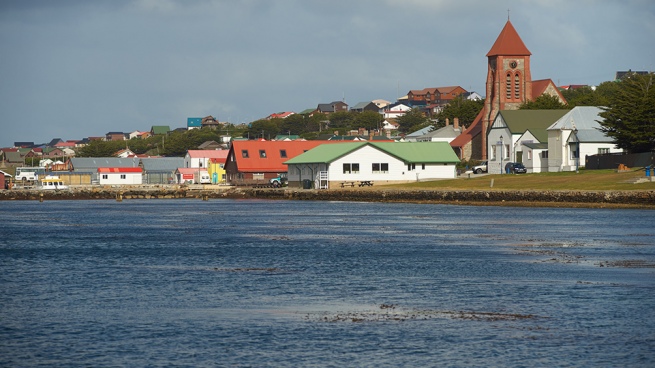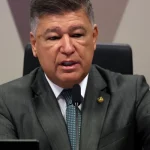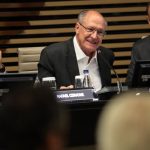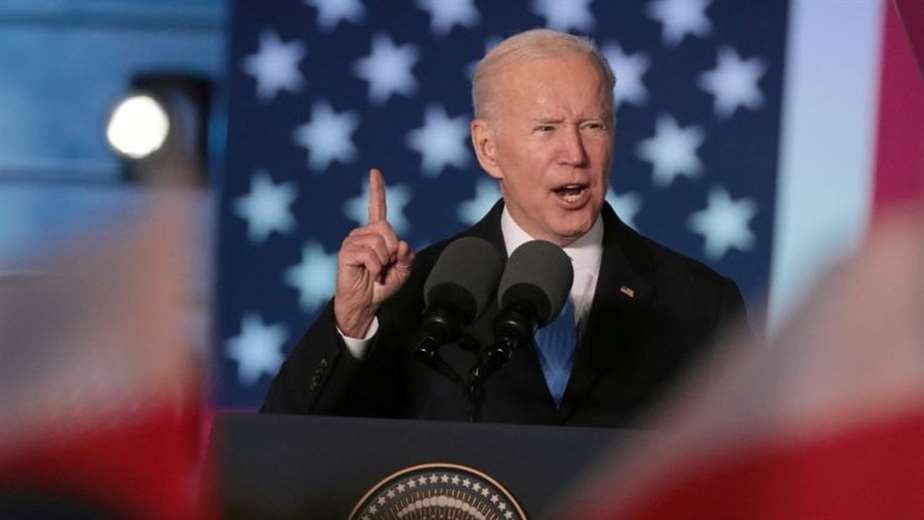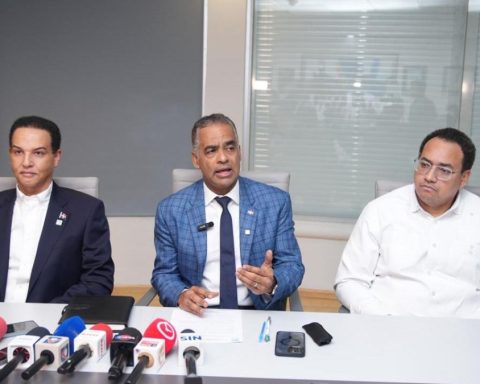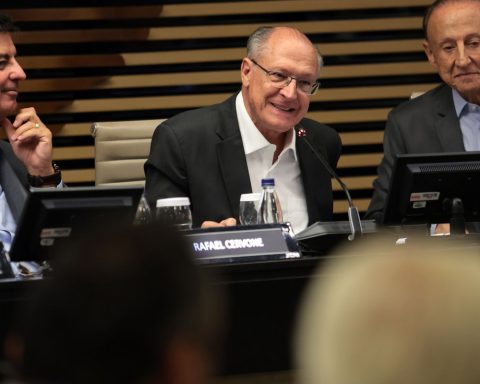The historic claim for the sovereignty of the Malvinas Islands constitutes the most sensitive and permanent point of Argentine foreign policy, not only because of the profound symbolic dimension it has for all Argentines, but also because of the geopolitical, economic and strategic importance of the archipelago that the United Kingdom has usurped since 1833.
The appeal for a peaceful and diplomatic resolution to the dispute was configured as one of the inalienable State policies since the democratic restoration of 1983.
Although with nuances in its intensity, the claim of Malvinas as a national territory is supported before different organizations and multilateral forums by all the governments that succeeded the last civic-military dictatorship and its failed war adventure of 1982.
The military enterprise with which the dictator Leopoldo Galtieri tried to stop the irreversible end of the genocidal regime involved a diversion in the history of claims, which in 1965 led to United Nations (UN) Resolution 2065, the first of that body to recognize the existence of the sovereignty dispute between Argentina and the United Kingdom.
With everything, the war did not alter the nature of the dispute over the sovereignty of the Malvinas, South Georgia, South Sandwich Islands and the surrounding maritime spaceswhich continued pending negotiation and solution.
That’s how he set it in September 1982 the UN General Assembly through resolution 37/9, which reaffirmed the previous resolutions on the subject and requested Buenos Aires and London to resume negotiations to find a peaceful solution to the dispute as soon as possible.
Already in democracy, the Malvinas Question was crossed by a pendulum foreign policy, between governments more prone to an automatic alignment with the US and European powers and those governments that base their integration into the world from Latin Americanist positions.
While some chose to establish a series of understandings on “practical” issues, relegating the claim to a medium or long term; others placed it as the central axis in any type of negotiation with London.
Raúl Alfonsín resumed the historic claim through diplomatic channels, and hand in hand with his Foreign Minister Dante Caputo, he once again resorted to the UN.

Caputo also managed to add votes against British colonialism, for example, from the group of the so-called Non-Aligned Countriesin the midst of a Cold War still in force between the US and its allies and the Soviet Union and its satellites.
The Radical government failed in its intention to reestablish bilateral relations with the United Kingdom, including restarting the Malvinas negotiations on the agenda, something that was rejected by London, but it managed to successfully maintain the legal validity of the dispute.
The arrival of Carlos Menem to the Casa Rosada (1989-1999), in the context of the end of the cold war and the global rise of the Washington Consensus and neoliberalism, began a new stage of foreign policy, rehearsing the Malvinas Question a “policy of rapprochement” with the United Kingdom, centered on cooperation.
Those were times of “carnal relations” with the US and of a “friendly” policy with Great Britain, which had its most extreme expression in the Winnie Pooh bears with which the then Foreign Minister Guido Di Tella tried to “seduce” the British inhabitants. implanted in the islands, which London always used as an excuse not to advance in the dialogue.
However, in 1994, the Constitutional Convention put in the letter of the Argentine supreme law the claim for the islands and that they should be recovered peacefully.
The reestablishment of bilateral relations will take place through the Madrid Agreements in 1989 and 1990 under the formula of the umbrella of sovereignty.
The Menem government signed 47 understandings with the United Kingdom on a multitude of issues, 17 of them linked to the Malvinas, and particularly with economic issues that were especially problematic from the beginning.
The South Atlantic Fishery Commission for the Conservation of Fishery Resources was created. However, London promoted unilateral actions both in this matter and in hydrocarbon exploitation, which led to the breach of international law and UN resolution 31/49, which prohibits innovation in the disputed area.
Later, the “Communications Agreement” was established, which involved a flight between the Malvinas and Punta Arenas, with a stopover in Río Gallegos, which again enabled, under the signature of passports (and under a sovereignty formula), the movement of passengers between the islands and the mainland.
The stage that began in 1989 will continue until 2003 with the governments of Fernando De la Rúa and Eduardo Duhalde, in which the rapprochement with the United Kingdom continues to structure the bilateral relationship.
However, in 2000, due to unilateral British actions, Argentina ceased to participate in the Hydrocarbons Commission. Meanwhile, the Duhalde government, immersed in the deep Argentine crisis of 2001, did not make substantive changes to the Malvinas agenda.
With the assumption of Néstor Kirchner (2003-2007) began a new stage in foreign policy and, within this, the Malvinas Question, which continued under the government of Cristina Fernández de Kirchner (2007-2015).
In an international scenario marked by greater multipolarity and to the rhythm of the emergence of regional organizations (Unasur in 2008 and Celac in 2011), Argentina carried out a foreign policy defined as a “policy of firmness”.
the then chancellor Jorge Taiana understood that the provisional agreements, far from bringing the parties closer to the negotiating table, tended to create a certain consolidation of the status quo and a gradual strengthening of the British position..
Under this premise, the firmness of the new government resulted in the revision of the understandings that favored the British position in the South Atlantic.
In 2003, Argentina stopped authorizing charter flights, which were analyzed on a case-by-case basis, exceptionally, since they were not part of the 1999 agreement, and proposed the constitution of a new agreement, on a second flight, between the Malvinas Islands and the Argentine continental territory, through the flag carrier.
In 2005, in relation to fishery resources, Argentina sent 15 protest notes to the United Kingdom, at the same time, which proposed an agenda for the South Atlantic Fisheries Commission, which highlighted the relationship between the conservation of fishing resources with the unresolved underlying issue: the sovereignty of the archipelago.
The United Kingdom rejected this project and continued with unilateral actions, for which Argentina ceased to participate in said commission and, in 2007, terminated the 1995 hydrocarbons understanding.
Between 2003 and 2015, the Argentine intention to seat London at a negotiating table obtained the support of the UN, the OAS and other international and regional forums such as the G77 + China, Unasur, Mercosur and CELAC (which includes the countries of the Caribbean that are part of the Commonwealth).
The inauguration of Mauricio Macri in 2015 once again overturned the pendulum of the country’s foreign policy towards an alignment with the US and, in this framework, Argentina showed a new rapprochement with the United Kingdom, already with the Brexit process underway.
The then Foreign Minister Susana Malcorra announced at the beginning of the Cambiemos administration that dialogue and collaboration with London should be explored beyond the discussion of the sovereignty of the archipelago.
One of the first measures of Macri’s government – the first president elected since 1983 not to include the Malvinas Question in his presidential inauguration speech – was to lower the rank of the Malvinas Secretariat, created by Cristina Fernández de Kirchner.

In 2016, the so-called “Foradori-Duncan Agreement” was born, strictly speaking, a joint statement signed by the deputy foreign ministers of Argentina and the United Kingdom judged as “one of the most damaging events for national interests in general and the historic claim for the exercise of sovereignty over the Malvinas Islands in particular”, as the former Malvinas secretary, Daniel Filmus, once defined.
Analysts questioned the fact that resolutions 2065 were not mentioned in that document, nor resolution 31/49 -which prohibits unilateral acts-, nor the illegitimate British military base in Malvinas, a zone of peace and cooperation in the South Atlantic.
It did refer to British demands, such as the possibility of extending a flight to third countries through third airlines; and to remove the legislation that Argentina had promoted, in 2010, 2011 and 2013 in matters of fishing and hydrocarbons, in defense of the natural resources legitimately claimed by the country.
The arrival of Alberto Fernández to the Presidency in 2019 meant the return of a multipolar foreign policy that once again has the Malvinas Question as a central axis of its agenda.
The new administration revived the Malvinas, Antarctica and South Atlantic Secretariat and sought and obtained renewed support for the Argentine claim in international and regional forums and organizations.
He also proposed and managed to get the National Congress to convert into law three projects aimed at protecting the Malvinas as a State policy: the constitution of the Malvinas Council, the ratification of the limits of the continental shelf and a norm linked to the defense of fishing resources.
